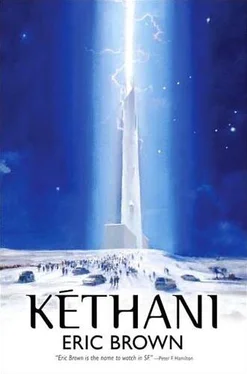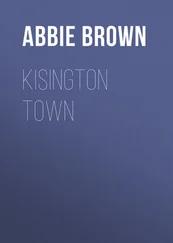Eric Brown - Kéthani
Здесь есть возможность читать онлайн «Eric Brown - Kéthani» весь текст электронной книги совершенно бесплатно (целиком полную версию без сокращений). В некоторых случаях можно слушать аудио, скачать через торрент в формате fb2 и присутствует краткое содержание. Город: Oxford, Год выпуска: 2009, ISBN: 2009, Издательство: Solaris, Жанр: Фантастика и фэнтези, на английском языке. Описание произведения, (предисловие) а так же отзывы посетителей доступны на портале библиотеки ЛибКат.
- Название:Kéthani
- Автор:
- Издательство:Solaris
- Жанр:
- Год:2009
- Город:Oxford
- ISBN:9781844167128
- Рейтинг книги:5 / 5. Голосов: 1
-
Избранное:Добавить в избранное
- Отзывы:
-
Ваша оценка:
- 100
- 1
- 2
- 3
- 4
- 5
Kéthani: краткое содержание, описание и аннотация
Предлагаем к чтению аннотацию, описание, краткое содержание или предисловие (зависит от того, что написал сам автор книги «Kéthani»). Если вы не нашли необходимую информацию о книге — напишите в комментариях, мы постараемся отыскать её.
Kéthani — читать онлайн бесплатно полную книгу (весь текст) целиком
Ниже представлен текст книги, разбитый по страницам. Система сохранения места последней прочитанной страницы, позволяет с удобством читать онлайн бесплатно книгу «Kéthani», без необходимости каждый раз заново искать на чём Вы остановились. Поставьте закладку, и сможете в любой момент перейти на страницу, на которой закончили чтение.
Интервал:
Закладка:
Only as I was wending my way home, with Richard by my side, did it occur to me that we had failed abjectly to learn anything more about Gregory than we knew already.
I said as much to the ferryman.
He was staring at the rearing crystal pinnacle of the Onward Station, perched miles away on the crest of the moors.
“Greg’s so friendly it seems rude to pry,” he said.
A week later I accidentally found out more about Gregory Merrall and, I thought, the reason for his insularity.
I arrived at the Fleece just after nine, eager to tell what I’d discovered. The group was ensconced before the blazing fire.
Ben and Elisabeth—in their fifties now and still holding hands—both looked at the book I was holding. Ben said, “Tired of our conversation, Khalid?”
Andy Souter laughed, “If we’re all doing our own thing, then I’ll get my cornet out and practice.”
Dan Chester made to cover his ears. “Spare us, Andy, please!”
I smiled. Everyone turned my way as I held up the novel, my hand concealing the name of the author.
“ A Question of Trust,” Samantha Kingsley said. “I didn’t know you were a great reader, Khalid.”
“I’m not. I was in Bradley today, and this was in the window of the bookshop.”
“So,” Richard said. “Who’s it by?”
“Three guesses,” I said.
“You,” Stuart Kingsley said. “You’ve retired from the implant ward and started writing?”
“Not me, Stuart. But you do know him.”
Sam cheated. She was sitting next to me, and she tipped her stool and peeked at the author’s photo on the back of the jacket.
“Aha!” she said. “Mystery solved.”
I removed my hand from the byline.
Dan said, “Gregory!”
“This explains a few things,” I said. “His experience, his reluctance to talk about himself—some writers are notoriously modest.” I opened the book and read the mini-biography inside the back flap. “Gregory Merrall was born in 1965 in London. He has been a full-time freelance writer for more than thirty years, with novels, collections, and volumes of poetry to his name.”
Five minutes later Gregory hurried in, hugging himself against the bone-aching cold. He crossed to the fire and roasted his outstretched hands before the flames.
He saw the book, which I’d placed on the table before me, and laughed. “So… my secret’s out.”
“Why didn’t you tell us?” Richard said, returning from the bar with a pint for our resident writer.
Gregory took a long draught. “It’s something I don’t much like talking about,” he said. “People assume a number of things when you mention you’re a scribbler. They either think you’re bragging, that you’re incredibly well-off—would that that were so!—that you’re some kind of intellectual heavyweight, or that you’ll immediately start regaling them with fabulous stories.”
“Well,” Sam said, “you have told us some fascinating tales.”
Gregory inclined his head in gracious assent. “It’s just not something I feel the need to talk about,” he went on. “What matters is not so much talking about it, but getting it done.”
The evening unfolded, and at one point someone asked Gregory (it was Stuart, a lecturer at Leeds and something of an egghead himself), “How do you think the coming of the Kéthani has affected how we write about the human experience?”
Gregory frowned into his pint. “Where to begin? Well, it’s certainly polarised writers around the world. Some have turned even further inwards, minutely chronicling the human condition in the light of our new-found immortality. Others have ignored it and written about the past, and there’s a vast market for nostalgia these days! A few speculate about what life might be like post-death, when we take the leap into the vast inhabited universe.”
Richard looked at him. “And where would you put yourself, Gregory?”
Merrall picked up his novel and leafed through it, pausing occasionally to read a line or two. “I’m firmly in the speculative camp,” he said, “trying to come to some understanding of what life out there might be like, why the Kéthani came to Earth—what their motives might be.”
That set the subject for the rest of the evening: the Kéthani and their modus operandi. Of the nine regulars around the table that night, only three of us had died, been resurrected on the home planet of the Kéthani, and returned to Earth: Stuart and Samantha Kingsley, and myself.
I looked back to my resurrection and what I had learned. I had become a better human being, thanks to the aliens, but in common with everyone else who had been resurrected and returned to Earth, I found it difficult to pin down precisely how I had become a better person.
At one point Andy Souter said, “I read a novel, a couple of years ago, about a guy who was really a Kéthani disguised as a human, come among us to change our ways.”
Gregory nodded. “I know it. The Effectuator by Duchamp.”
“I’ve heard rumours that that happens,” I said. I shrugged. “Who knows?”
“There are rumours up at the Station,” Dan said. “Some of the backroom staff up there are pretty remote. Isn’t that right, Richard?”
Richard smiled. “They’re just cussed Yorkshire folk,” he laughed.
Sam lowered her pint of lager and asked Gregory, “Do you think that happens? Do you think the Kéthani are amongst us?”
Gregory considered. “It’s entirely possible,” he said. “No one has ever seen a Kéthani, and as they obviously possess technology far in advance of anything we know, then passing themselves off as human wouldn’t pose that much of a problem.”
Andy said, “But the morality of it… I mean, surely if they’re working for our good, then they could at least be open about it.”
“The Kéthani work in mysterious ways…” Sam said.
Andy went on, “We take them for granted… we assume they’re working for our good. But we don’t really know, for sure.”
Six pints the worse, I turned to Gregory and said, “Well, you write about the… the whole thing, the Kéthani, death and revival… what do you think?”
He was some seconds before replying. He stared into the fire. “I think,” he said, “that the Kéthani are the saviours of our race, and that whatever they have planned for us when we venture out there—though I don’t presume to know what that might be—will be wholly for our good.”
After that, talk turned to how things had changed due to the coming of the Kéthani. I said, “The change has been gradual, very gradual. I mean, so slow it’s been hardly noticeable.” I looked around the table. “You’ve all felt it: it’s as if we’re treading water, biding our time. It’s as if a vast sense of complacency has descended over the human race.” I’d never put these feelings into words before—they’d been a kind of background niggle in my consciousness. “I don’t know… Sometimes I feel as if I’m only really alive among you lot on Tuesday nights!”
Richard laughed. “I know what you mean. Things that once were seen as important—everything from politics to sport—no longer have that… vitality.”
“And,” Stuart put in, “England is emptying. Come to that, the world is. I don’t know what the figures are, but more and more people are staying out there when they die.”
And with that thought we called it a night, departed the cosy confines of the main bar and stepped out into the bracing winter chill.
The Onward Station was like an inverted icicle in the light of the full moon, and as I made my way home a brilliant bolt of magnesium light illuminated the night as it ascended to the waiting Kéthani starship.
Читать дальшеИнтервал:
Закладка:
Похожие книги на «Kéthani»
Представляем Вашему вниманию похожие книги на «Kéthani» списком для выбора. Мы отобрали схожую по названию и смыслу литературу в надежде предоставить читателям больше вариантов отыскать новые, интересные, ещё непрочитанные произведения.
Обсуждение, отзывы о книге «Kéthani» и просто собственные мнения читателей. Оставьте ваши комментарии, напишите, что Вы думаете о произведении, его смысле или главных героях. Укажите что конкретно понравилось, а что нет, и почему Вы так считаете.












